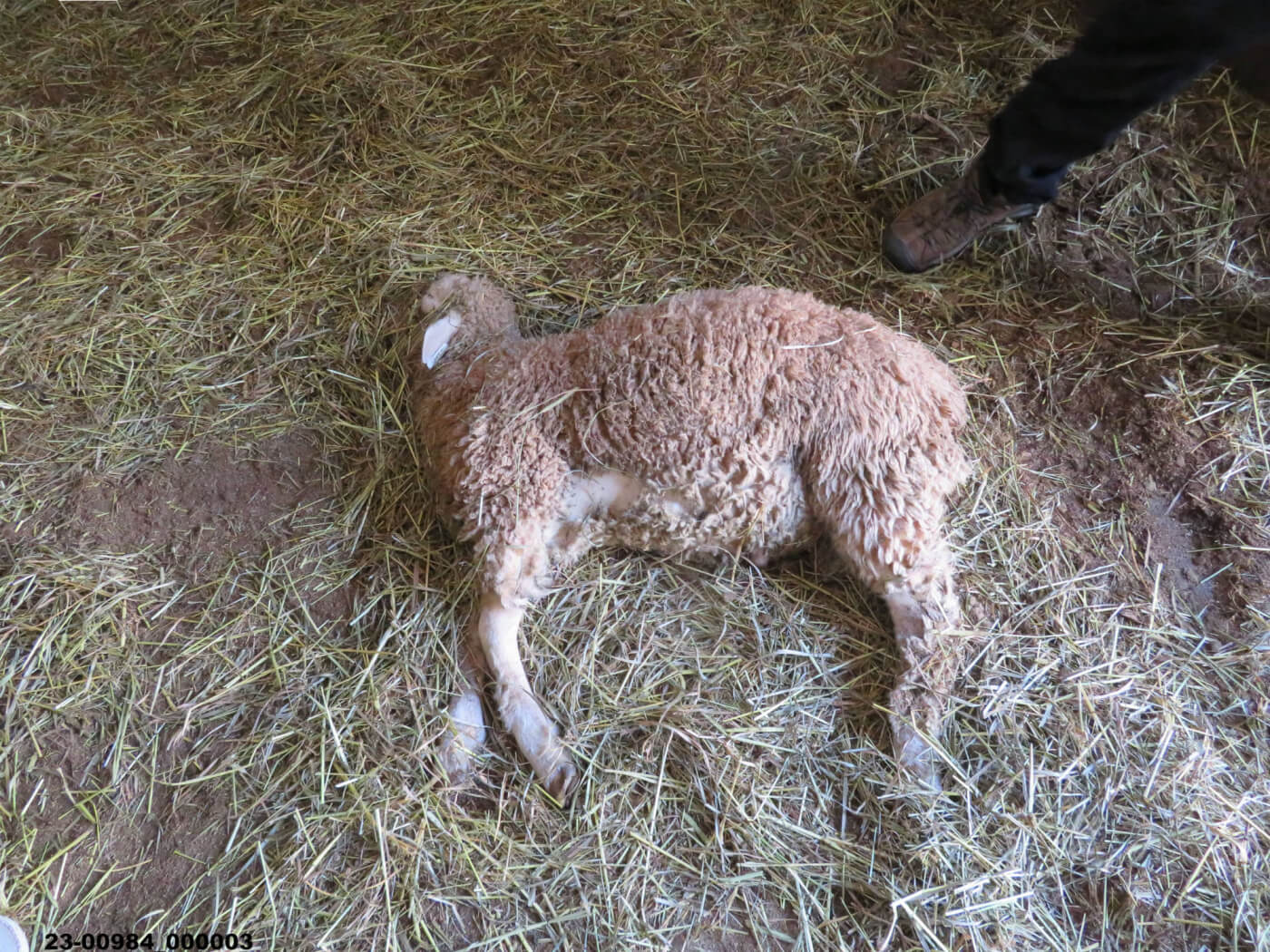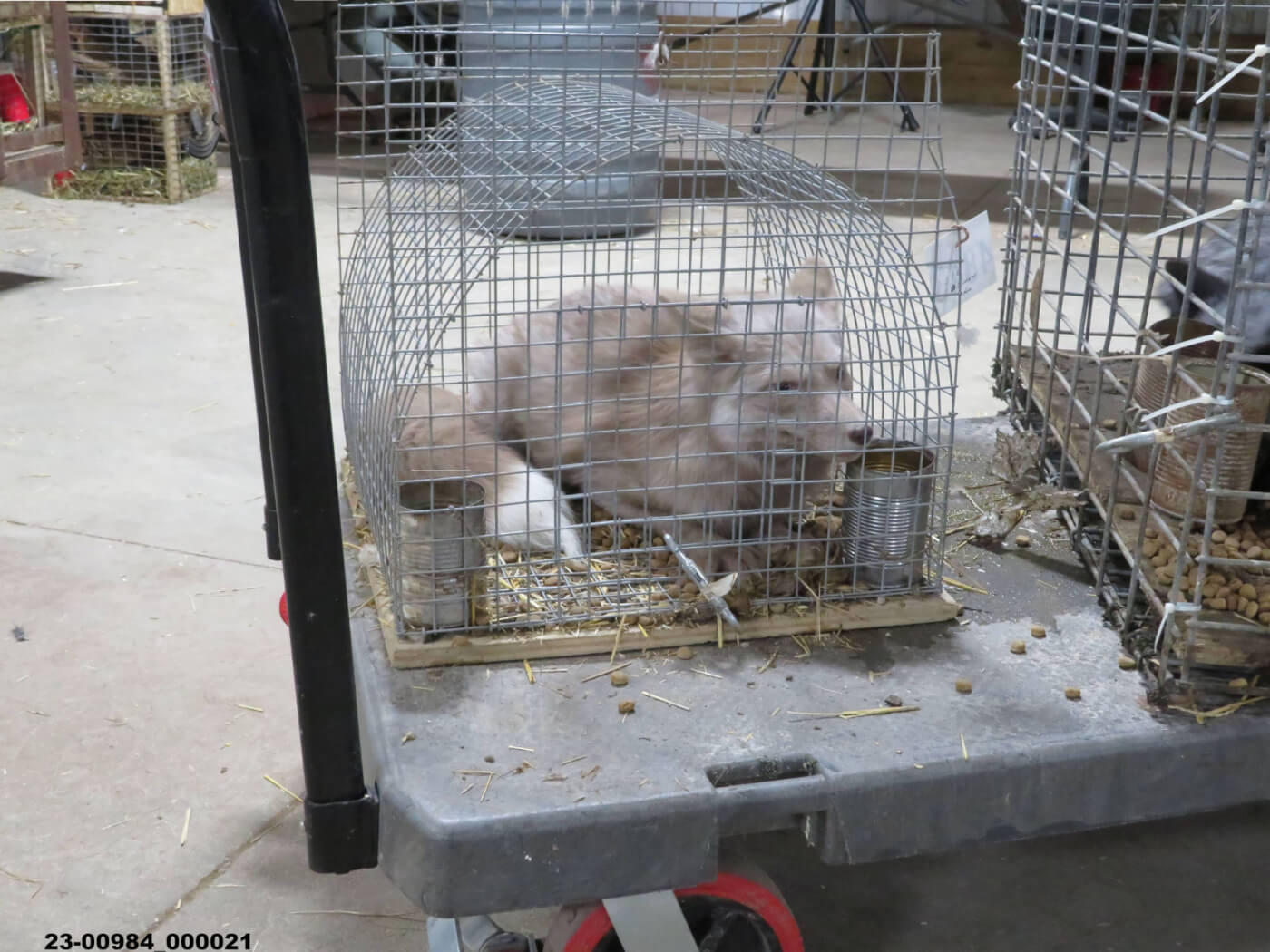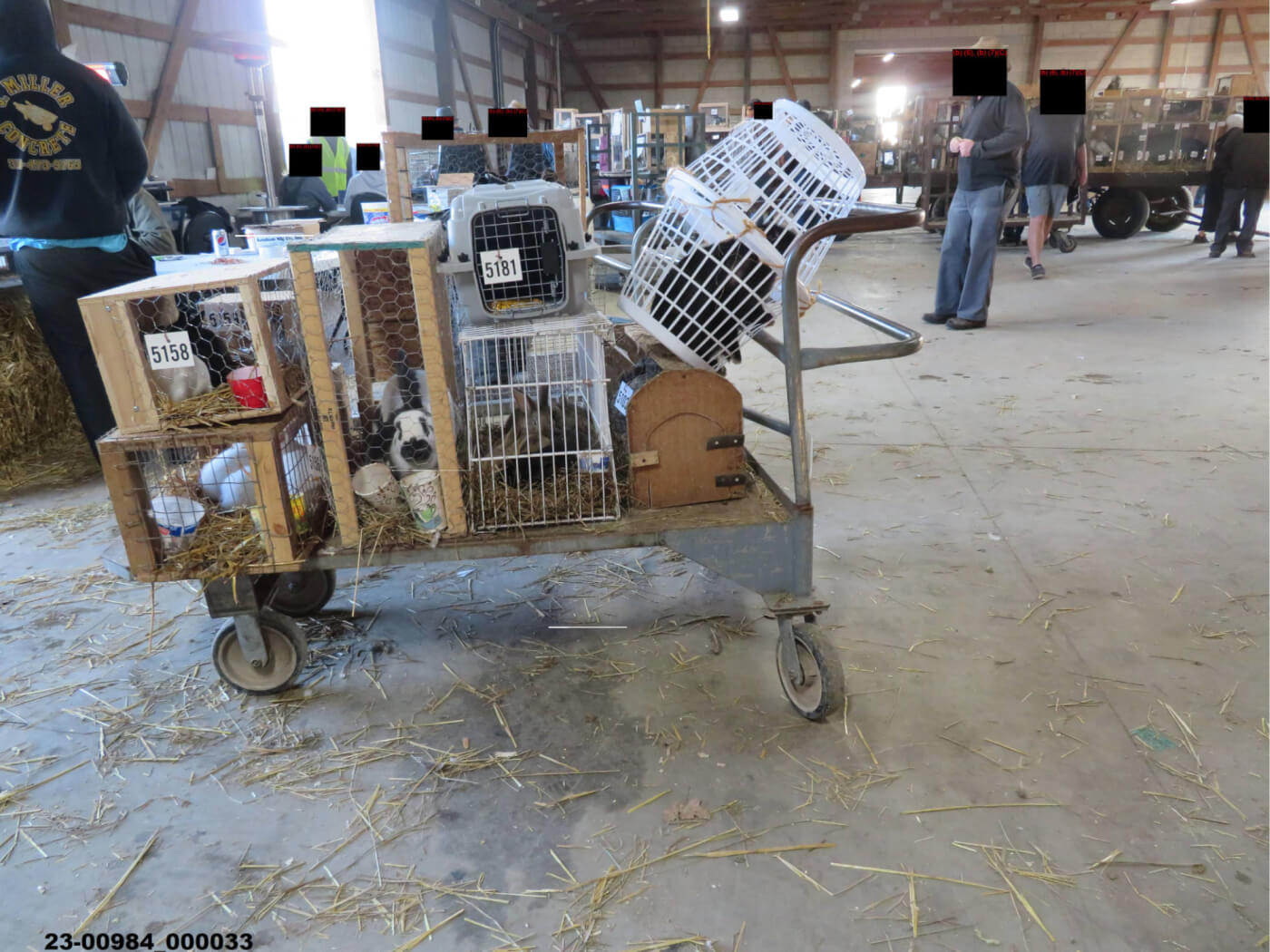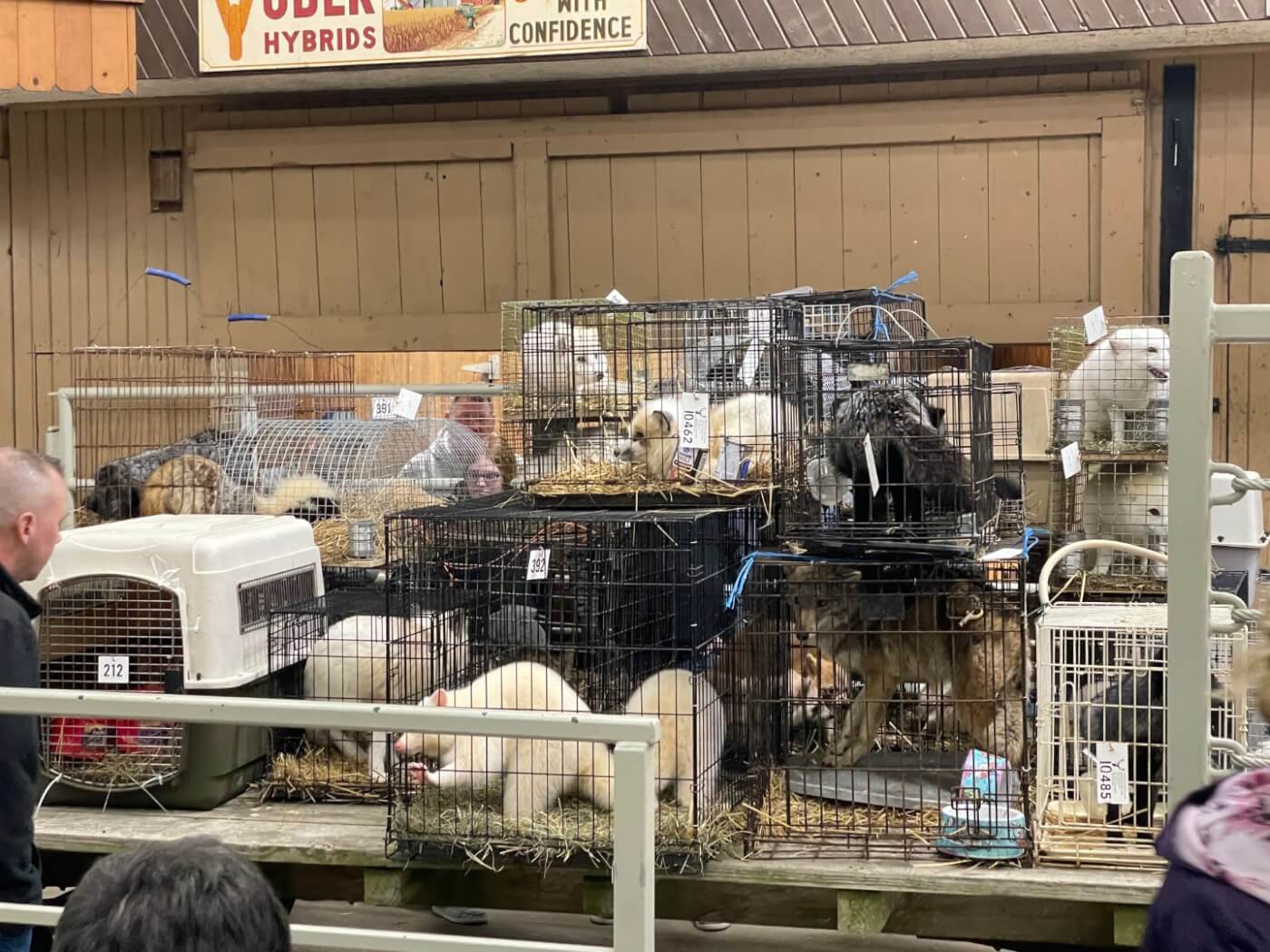Mt. Hope Auction Cited by the USDA 21 Times in Under 2 Months
We urged the U.S. Department of Agriculture (USDA) to inspect the Mt. Hope Auction stockyard, a hellhole that sells exotic animals in Ohio three times a year, and the agency listened. The USDA inspected the foul facility and issued it a whopping 21 citations over a month and a half for failing to meet the minimum standards required by the federal Animal Welfare Act (AWA).
According to one report from September 15, 2022, and another from November 3, 2022, inspectors who visited the exotic-animal auction found numerous problems, many of which went uncorrected between inspections.

Staff were routinely absent from supervising roles at Mt. Hope, which contributed to one animal’s injury and another’s death as well as a litany of distressing incidents that endangered the public, including the following:
- Staff were unaware of a dead ram in the main sales barn until they were notified by inspectors.
- A deer became trapped in a gap in an enclosure gate and started “thrashing, pulling, and twisting her body, trying to free her leg.” An inspector had to free her, as no staff were present.
- Members of the public were repeatedly able to touch and attempt to touch dangerous animals—including a camel, a coyote, a fox, and a raccoon—freely, as no staff were present to prevent or supervise interactions.

Mt. Hope cruelly warehouses terrified animals for sale to the highest bidder, and it has little concern for their well-being. Many of the citations issued by the USDA involved the terrible enclosures in which animals were held:
- Dozens of animals languished in enclosures that lacked proper ventilation, making it difficult for them to breathe, especially when the cages were dangerously stacked on top of one another.
- A feces-covered enclosure housed three chinchillas and offered “very little space for the animals to move without having to walk through their own excrement.”
- Mammals, including degus, skunks, squirrel monkeys, and a capybara, were kept in inadequate enclosures.
- Cages full of helpless rabbits were stacked in a precarious way that put them at serious risk of tumbling.
- A fox was left in a cage too small to stand or lie down in normally.

The Mt. Hope Auction is a hellhole for stressed animals, and since unsupervised visitors have repeatedly been able to touch wild animals there, it’s only a matter of time before it turns hellish for humans, too. PETA is calling on everyone to stay away from this facility, in which animals are left for dead or made to suffer in unsafe and filthy enclosures.
Mt. Hope’s Checkered Past
Mt. Hope Auction has been repeatedly cited for allowing unlicensed dealers to sell animals unlawfully, most recently during a USDA inspection in October 2022 when the “auction knowingly accepted several animals for sale from unlicensed individuals.” For this and other citations mentioned above, the agency issued an official warning. During the same inspection, the auction’s incomplete record keeping—“[a]lmost all of the approximately 1000 records”—was also cited. Previous citations for AWA violations were related to handling concerns and unsafe enclosures.
Mt. Hope’s Sellers Have Included Infamous Offenders
This operation’s notorious clients have included Pymatuning Deer Park, which relinquished eight animals in its custody following litigation by PETA and the Animal Legal Defense Fund; Hovatter’s Wildlife Zoo, which is included on PETA’s blacklist of highway hellholes; and Jerry Holly, an exotic-animal breeder who has been cited for more than 100 violations of the AWA.

Never Support Exotic-Animal Auctions
When it comes to exotic-animal auctions, the horrors at Mt. Hope Auction are the rule, not the exception. At these events, sometimes called “alternative livestock auctions,” several species are sold to the highest bidder with little regard for their welfare. Many of these animals include exotic hoofed mammals—such as zebras, antelopes, zebus, and Watusis—but exotic-animal auctions also often include dozens of bird species. Peddlers sell small mammals such as hedgehogs, guinea pigs, and rabbits at auctions, and many events feature reptiles for sale. The auction houses are part of a “robust billion-dollar U.S. trade in exotic animals.”
PETA’s coverage of the Shelby Alternative Livestock Auction and Triple W Exotic Animal Auction blew the lid off the horrific conditions that exotic-animal profiteers try to hide: lack of proper medical care, crude enclosures, and abusive handlers.
You can take action for the animals at Shelby Alternative Livestock Auction by urging the operators of the Cleveland County Agriculture & Livestock Exchange to ban exotic-animal auctions:

